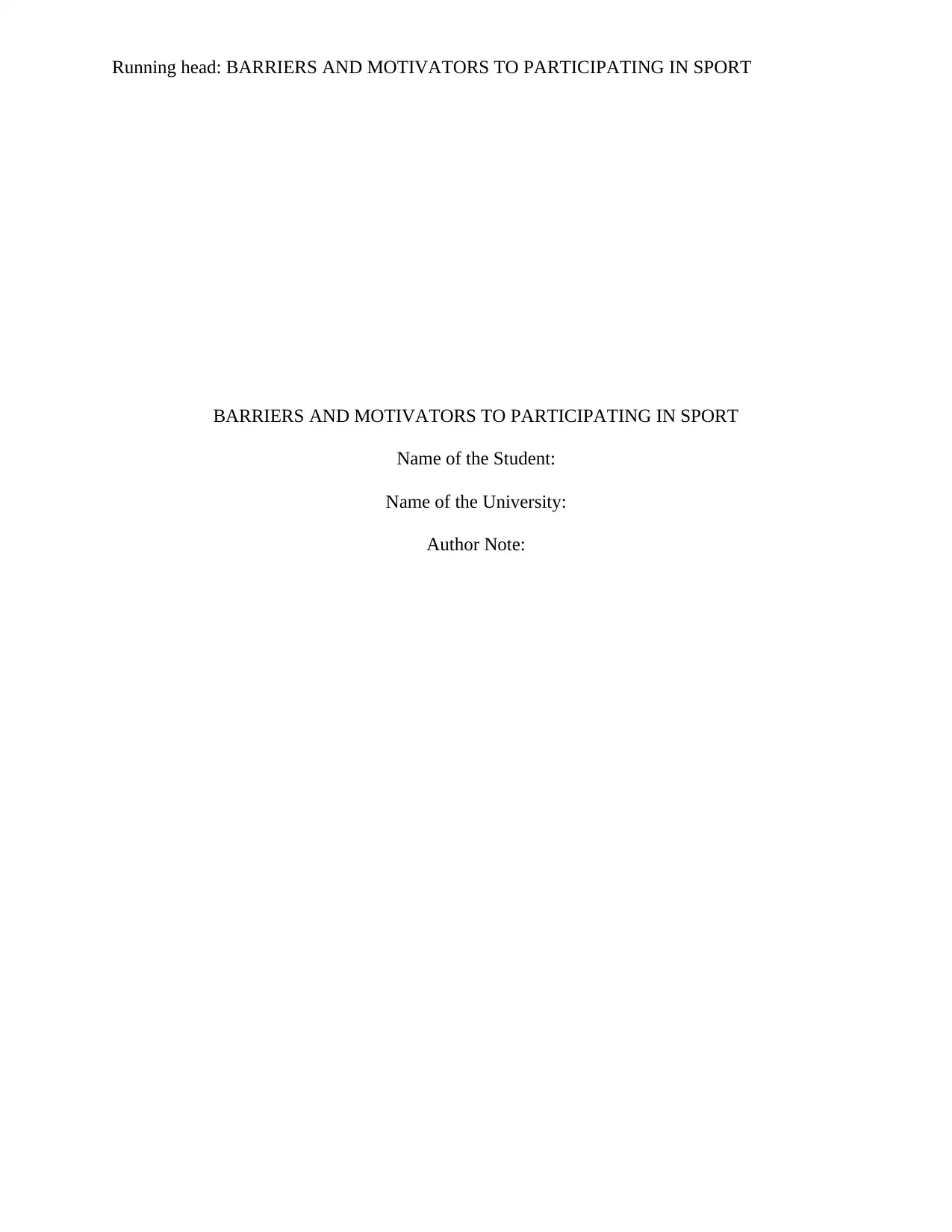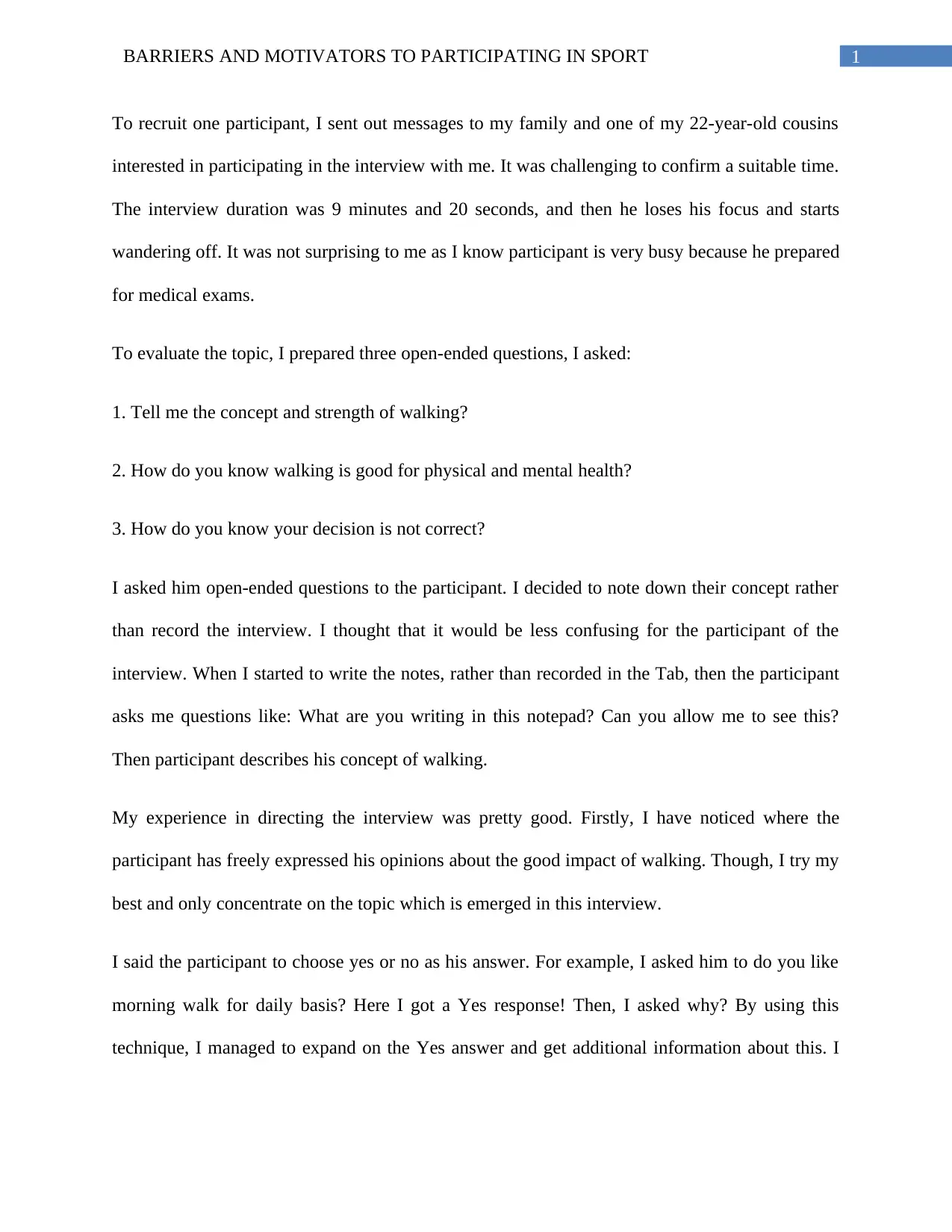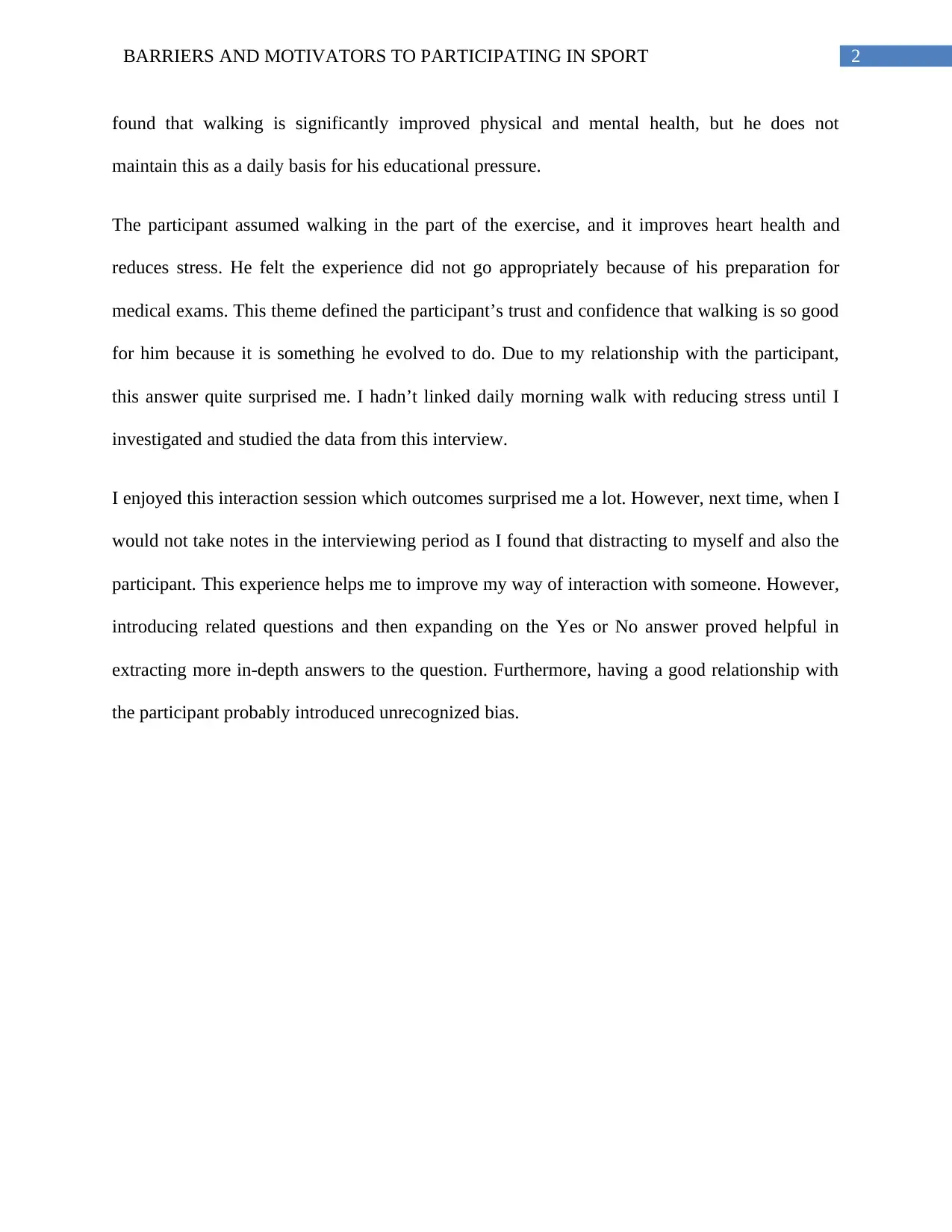Interview Reflection: Barriers and Motivators to Sport Participation
VerifiedAdded on 2022/11/13
|3
|586
|116
Homework Assignment
AI Summary
This assignment presents a reflection on conducting interviews, focusing on the barriers and motivators to participating in sport. The student conducted an interview with a participant, exploring their perceptions of walking, its benefits, and the challenges to consistent participation. The student prepared open-ended questions to understand the participant's views on walking's physical and mental health benefits. The reflection discusses the interview process, including the challenges of note-taking and potential biases due to the pre-existing relationship with the participant. The student also reflects on the effectiveness of the interview techniques used, such as expanding on 'yes' or 'no' answers to gather more in-depth information, and the surprising outcomes of the interaction. The assignment also includes the experience of conducting an interview with the student's son regarding piano lessons, highlighting the challenges of maintaining focus with a younger participant and the impact of note-taking during the interview. Furthermore, the assignment outlines the recruitment of three participants to explore whether health status is a parameter for exercise adherence. The student reflects on the challenges of scheduling interviews and the decision to record the interviews. The assignment provides insights into the interview process, the importance of interview techniques, and the challenges of gathering information from participants.
1 out of 3










![[object Object]](/_next/static/media/star-bottom.7253800d.svg)